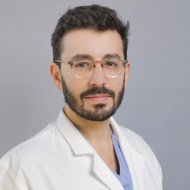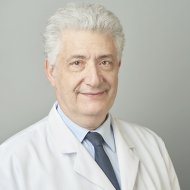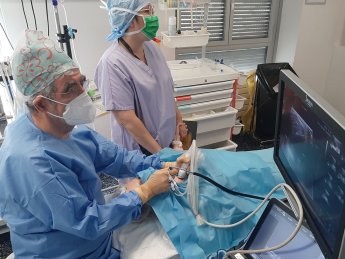
Diabetes - Endocrinology
Useful information
Diabetes - Endocrinology Consultations
Consultations de Thyroïdologie morphologique et interventionnelle
Conditions Frequently Treated
- Type 2 diabetes, with and without insulin treatment
- Thyroid nodules
- Hyperthyroidism
- Hypothyroidism
- Hyperparathyroidism
- Hypoparathyroïdies (post-chirurgie ou radiques…)
- Thyroïditis (autoimmune, post partum, Quervain, iatrogenic: cordarone, new anti-cancer drugs, etc.)
- Goiters
- Pituitary adenomas (prolactinoma, acromegaly, etc.)
- Adrenal disorders (deficiency, nodules, hyperplasia, etc.)
- Hyperandrogenism (polycystic ovary syndrome, 21-hydroxylase deficiency, etc.)
- Other pituitary disorders (hypophysitis , hypopituitarism, etc.)
Our Service
Our unit’s senior physicians are available for consultations every day and are present on-site. They can also be reached 24/7 if needed.
Patients suffering from gestational diabetes can be monitored remotely to track their glucose levels and avoid unnecessary travel.
Complex cases are discussed by a multidisciplinary team at weekly meetings.
Each month, a multidisciplinary meeting is held to discuss thyroid and parathyroid care. The team consists of surgeons, nuclear medicine specialists, endocrinologists, and specialists in thyroid ultrasound and the nonsurgical treatment of thyroid and parathyroid nodules.

What Sets Us Apart
- AvailabilityWe deliver comprehensive care that extends beyond a patient’s consultation or hospitalization to include follow-up and support.
- Rapid CareWe strive to minimize any wait for consultations or additional exams that may be required.
- Innovative TreatmentsIn our service, you have access to the latest innovations in diabetes care and thyroid treatment.
Treatments & Exams
Our diabetes and endocrine treatment services include:
- Continuous glucose monitoring
- Non-surgical thyroid nodule ablation techniques (laser, radiofrequency, and ultrasound)
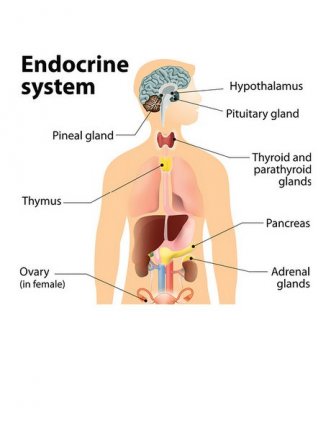
Endocrinology - Main treatments & exams
- Adrenal incidentalomas: diagnosis with clinical examination, hormonology, imaging/nuclear medicine. Simple monitoring, initiation of drug treatment or surgical indication with on-site management by an expert surgeon
- Pituitary adenomas: diagnosis with clinical examination, hormonology and MRI. Evaluation of the visual impact with an expert ophthalmologist. Simple monitoring, drug treatment or surgery with management at the Pitié Salpêtrière Hospital
- Endocrinopathies secondary to new anti-cancer treatments: diagnosis with clinical examination, hormonology and imaging. Simple monitoring or initiation of a drug treatment in coordination with the referring oncologist.
- Hyperandrogenism (sopk...): holistic and personalized management: hygienic and dietary measures, possible medicinal or local treatment (laser) in coordination with the referring gynaecologist
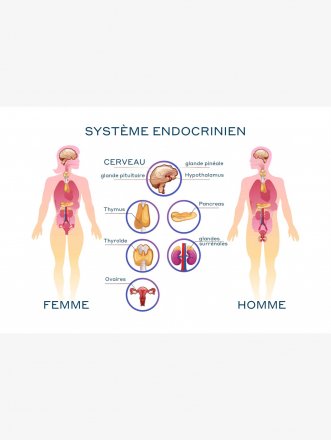
Thyroidology - Main treatments & exams
- Management of hyperthyroidism (Basedow), hypothyroidism, thyroiditis (Hashimoto)
- Management of thyroid treatment intolerances
- Parathyroid and cervical ultrasound
- In situ hormone assays (PTH, thyroglobulin and thyrocalcitonin)
- Tumor marking (charcoal)
- Iodine123 scintigraphy, MIBI-SPECT-CT and PET-Choline (collaboration with the nuclear medicine department)
- Thyroid and parathyroid surgery (collaboration with the ENT department): thyroid nodule, Graves' disease, goiter, parathyroid adenoma, other cervical masses
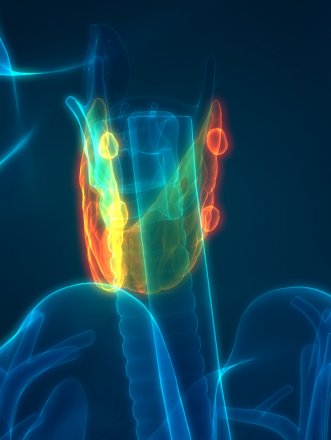
Thyroid
The thyroid, from the ancient Greek thyreos "long shield", is a gland located at the base of the neck, acting on the metabolism of most cells in the body. Like the liver, it is a metabolic "control tower" and is necessary for life, especially for cognitive development.
The thyroid gland is a single, median endocrine gland located on the anterior aspect of the neck, opposite the second and third tracheal rings, to which it is attached by Grüber's ligament. It is composed of two lateral lobes joined by an isthmus from which the pyramidal lobe arises inconstantly, in the form of an upper extension slightly lateralized to the left and following the thyroglossal tract. The thyroid gland is H-shaped or butterfly-shaped, its weight is about 20 to 30 grams, with a soft and elastic consistency, reddish in color. Its volume is subject to inter-individual variations according to age, sex, weight, height, iodine load and a possible pathology (nodule, goiter, atrophic thyroiditis...).
The thyroid is a richly vascularized gland, due to the necessity of the passage of the hormonal messenger in the plasma to reach its target organs. The arterial vascularization is ensured by the superior, middle and inferior thyroid arteries.
Lymphatic drainage is important to know, especially in the context of thyroid cancers where ultrasound lymph node staging is essential for surgical management. Two main lymph node groups are individualized: the central compartment including the supra/sub-isthmic, recurrent and upper mediastinal nodes; the lateral compartment with the internal jugular and spinal chains.
The thyroid body is in "intimate" contact with the recurrent laryngeal nerve, the motor for the vocal cords.


